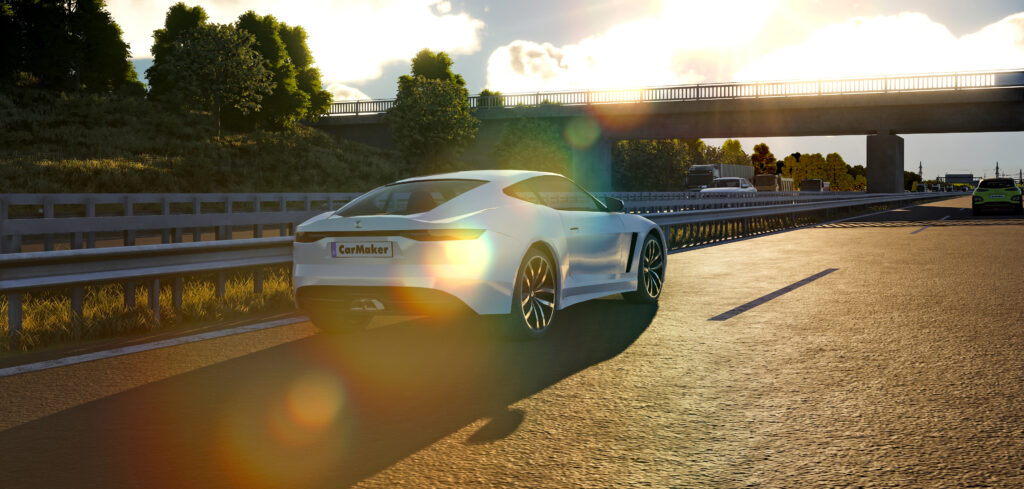At Open House Germany 2023 last month, IPG Automotive showcased CarMaker 12.0, the latest version of its simulation and test software. A multitude of new tools have been added, including those for scenario parameterization and a new ground truth sensor model. New functionalities have also been added for customizing the 3D environment. IPG’s software also enables scaling the generation of roads and has more solutions for hybrid and electric vehicle applications due to the program’s new battery model and a modular powertrain architecture.
Additionally, the new ground truth sensor features an array of data access options and is based on the novel software framework which makes data extraction easier for users. IPG has also updated the user interface to make it more user friendly. The first available instance of the ground truth sensor will be an optimized version of the line sensor.
Within CarMaker 12.0, IPG has also extended the functionalities for scenario parameterization, improving compatibility with the OpenSCENARIO
standard. Maneuver parameterization is now performed within the Scenario Editor. Several other new features have been added to the software, including a new import and export functionality, which helps to optimize the new scenario generation, and a new MovieNX Python API that enables users to interact with the 3D environment and automate MovieNX.
In addition to CarMaker 12.0, the company also announced the release of its VIRTO app suite, which delivers intuitive access to virtual vehicle development. A total of seven apps enable data and workflow management for traceable simulation, enabling users in different locations to collaborate within a common development environment.
The VIRTO app suite is described as a cloud-based, modular set of web applications that democratizes and scales simulation for vehicle development. The software infrastructure consists of seven apps, reducing the complexity of simulation applications and simplifying the management of parameter data, vehicle software, test results and vehicle models, and other things. The apps consist of:
VIRTO.DATA, which manages all the parameter data required for constructing a virtual vehicle. It also ensures robust engineering at an early point within the development cycle with simple, accessible and traceable data management across all levels. The app allows the quality- and maturity-assessed, as well as version-controlled, management of technological data.
VIRTO.MODEL manages ECU software and simulation models that are intended for integration into virtual vehicles. The application software ensures that vehicle software is straight-forward, open and easily integrated, and that the right software is used at the right time. It also allows the central management of software and simulation models.
VIRTO.BUILD makes the fully-automated setup of virtual vehicles easier, reducing the time spent on the necessary, time-consuming creation of traceable vehicle models. Vehicles can be created through automation, while quality assessment and release can be done with traceable data and software.
VIRTO.FLEET has been devised for managing all configurations of virtual vehicle derivatives. The app includes a virtual fleet, which makes simulation models accessible to anyone, as well as a comprehensive virtual fleet database.
VIRTO.SCENE is a searchable, traceable and version-controlled scenario database for storing and managing test scenarios and their components. The app reduces redundant work and ensures that virtual detection events are robust, accessible and easy to create.
VIRTO.TEST enables the management and realization of virtual test campaigns. The app accelerates CI/CD and the automation of virtual vehicle development, reducing time, effort and costs while delivering robust and reliable simulation results. It uses intelligent scheduling to combine scenarios and models and to distribute them across the simulation toolchain and the required resources via an automated process.
VIRTO.RESULT stores and manages test results and the way they were created. Giving everyone involved an insight into the results again reduces redundant work and costs. The app analyses the results and enables a key performance indicator assessment on dashboards that can be configured by the user.
VIRTO is devised as a “virtual helper” for vehicle developers, so that they can ensure the continuity of the virtual vehicle development process, and scale the virtual vehicle development according to state-of-the-art software workflows. This provides simulation options for day-to-day testing for less experienced users.


